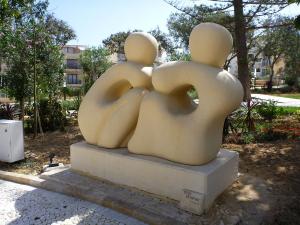
Gossip should be avoided. It often causes us to speak about things which should not be spoken, hurting the reputation of innocents through misinformation and innuendo. That is, gossip tends towards slander. Gossip is not based upon verifiable facts, though what is spread by it is treated as if it were. The more we engage it and share what we have heard to others, the more various rumors will be taken as facts, and as a result, many innocents will suffer as their good reputation is destroyed.
Gossip is the kind of talk which runs contrary to Christian charity, for Christians are meant to be edifying, helping promote what is good and true. “Let no evil talk come out of your mouths, but only such as is good for edifying, as fits the occasion, that it may impart grace to those who hear” (Eph. 4:29 RSV). Those who listen to gossip, and then tell what they heard to others without even confirming the validity of what they were told are doing no one any good. Even if what they were told turns out to be true, since they do not know it to be so, they are willing to smear the reputation of others and so will be held culpable for doing so. Their intention does not seem to be to present the truth, but rather, to appear to be people in the know, to be someone others look when they want to know what is going on, or worse, to be people who have the means to manipulate the situation around themselves. That is, they are either embracing pride and vainglory, or they are embracing malice, and as such, they are far from what they should be like if they are to be Christians. This is why it is important to stop ourselves from engaging in gossip, even if we have a tendency to share it, because if we don’t stop ourselves, our tongues will get us in trouble. We should heed James when he said, “If any one thinks he is religious, and does not bridle his tongue but deceives his heart, this man’s religion is vain” (Jas. 1:26 RSV).
Sometimes it is asked if it is acceptable to tell others what we have heard if we change the names of those involved, or do not give any names at all. One of the elders in the desert was asked this by a monk, and the elder said replied by saying it would be best to remain silent, but it might be permitted to share what they heard with others given the right conditions:
A brother asked one of the elders to give an opinion on a hypothetical question. “Suppose I see somebody doing something, and I describe it to someone else,” he said. “In my opinion, I am not passing judgment. We are only talking [about it], so it is not slander, even in the logismos.” The elder said, “If you have a passionate impulse, then it is slander. But if one is free of passion, it is not slander. But it is better to keep silent so that evil not be increased.”[1]
It would be easy to share some gossip about someone without revealing their name and yet speak in such a way that people can figure out who it is that is being discussed. Not giving the name, when is easily discerned, is certainly no excuse, and should be avoided. However, if someone wants to relate a story, and does a very good job of hiding those involved so no one would ever know, and the person has a good intention behind it, then it might be permitted to share it. After all, that is exactly the anonymous saying of an unknown desert elder presents to us. Nonetheless, if there is any question concerning whether or not we should keep silence, it is best to keep silent as we should not turn ourselves into tellers of tales who cannot be trusted by anyone (cf. Prov. 11:13). For, if we are honorable and trustworthy, people will trust us with their problems and get help from us, but if we are not, if we are known to share what we are told with others, they will know and perhaps not get the help they need.
It is extremely important that when we speak, or when we write, we do so with charity. It is not easy. Most of us will slip up from time to time and let our passions get the best of us. That is to be expected. And just as we would want others to forgive us when we do so, we should forgive others for their slip-ups as well. However, if our words have caused someone significant harm, even if we did not intend that harm, we should do our best to fix the situation, to repair the harm which we have caused and to make sure we do not do so again.
It is best if we do not put ourselves in situations where we will be tempted to disregard the expectations of charity, but, for most of us, it is probably near impossible to avoid all such situations, as most of us are not called to be hermits taking us away from society. We must do what we can to strive “to speak evil of no one, to avoid quarreling, to be gentle, and to show perfect courtesy toward all men” (Titus 3:2 RSV). Those who are capable of doing this are often the kind who can help people the most, while those who are more likely to get into quarrels and debates are those who are most likely to malign those they fight against, making things worse.
It is important to do what we can to purify our speech. We should avoid the kind of idle talk which can get us in trouble. It is important for us to develop our sense of charity, so that we can then know how it is we should act, and knowing it, strive to act in that fashion. Love can cover a multitude of sin; being loving to those whom we are tempted to speak ill about, or we are tempted to debate, is likely to do them far more good than speaking with them with hostile words. For, if we speak to them in charity, even if they are not being charitable to us, they will notice it, and as such, will more likely listen to us and consider what we have to say. But if we cannot speak in charity, then, perhaps, we should learn when to keep silent, for then we at least will not make things worse.
[1] John Wortley, trans. The Book of Elders. Sayings of the Desert Fathers. The Systematic Collection (Collegeville, MN: Cistercian Publications, 2012), 141 [N475].
Stay in touch! Like A Little Bit of Nothing on Facebook.
If you liked what you read, please consider sharing it with your friends and family!
N.B.: While I read comments to moderate them, I rarely respond to them. If I don’t respond to your comment directly, don’t assume I am unthankful for it. I appreciate it. But I want readers to feel free to ask questions, and hopefully, dialogue with each other. I have shared what I wanted to say, though some responses will get a brief reply by me, or, if I find it interesting and something I can engage fully, as the foundation for another post. I have had many posts inspired or improved upon thanks to my readers.













